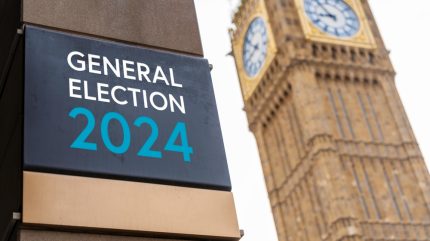LONDON – Will the Labour Party form the government, or will the Tory Party succeed once again? The British public will choose their new rulers today.
According to the foreign media reports, during the general elections taking place in the UK today, 4,515 candidates from various political parties will compete for 650 seats in the British Parliament. Additionally, 464 independent candidates will also try their luck. Across the UK, 40,000 polling stations have been set up for the general elections, with polling continuing from 7 AM to 10 PM local time.
During the general elections, nearly 50 million voters will select their preferred candidates based on issues like economic improvement, the challenges of increasing immigration, enhancements in education and health, and reducing rising household expenses.
UK General Elections 2024
On one side, Conservative Party leader and British Prime Minister Rishi Sunak is once again determined to win the elections, while on the other side, Labour Party leader Keir Starmer also has his eyes set on 10 Downing Street. Due to policies related to the Gaza conflict, the Green Party, Liberal Democrats, Reform UK, and independent candidates might give the Conservative and Labour parties a tough time.
According to a YouGov poll, the Labour Party has the upper hand in the British general elections, with predictions of Labour Party winning 212 seats in the House of Commons, making it the largest party. The Labour Party could break the 1832 record of the Whig Party, which had won 224 seats. After nearly two centuries, the Labour Party might become the largest single party in the House.
Which parties will compete in the elections?
Here, we look at the political parties participating in the elections, understand who is leading them, and what agenda they have brought to the election field this time.
Conservative Party
Prime Minister Rishi Sunak leads the Conservatives. He came to power in October 2022 when he inherited a struggling economy after the short tenure of Liz Truss as Prime Minister. The party had secured 365 seats in the last election. Rishi Sunak is an Oxford University graduate and a former Goldman Sachs hedge fund manager, the first non-white leader of the UK, and the first Hindu Prime Minister.
Labour Party
The Labour Party is led by 61-year-old Keir Starmer, a former Chief Prosecutor for England and Wales. He is considered a favorite to become the next Prime Minister of the UK. A moderate who believes in practical work, Starmer has worked hard to steer his party away from the more open socialist policies of former leader Jeremy Corbyn and to resolve internal conflicts. Critics say he lacks enthusiasm and ambition, but under his leadership, the Labour Party’s popularity has increased. The Labour Party had won 202 seats in the last election.
Liberal Democrats
Ed Davey leads the Liberal Democrats. The 58-year-old Davey was first elected to Parliament in 1997 and served as the Minister of Energy and Climate Change in the Conservative-Liberal Democrat coalition government from 2012 to 2015. He became the leader of the left-leaning Liberal Democrats in 2019, though he wasn’t very well-known to the public and had to make significant efforts in the current elections. He made headlines with various stunts, including bungee jumping, to encourage voters to take bold steps. The Liberal Democrats won 11 seats in the last election.
Reform UK
Nigel Farage, 60, leads Reform UK. Known for his fiery speeches that shake up politics, Farage has become a serious headache for the Conservative Party by announcing his participation in the elections. A staunch supporter of Brexit, Farage attracts many disillusioned Conservative voters with his promises to reduce immigration and focus on “British values.” Farage has previously run for Parliament seven times but has never succeeded. His party did not win any seats in the last election, although a candidate from Reform UK was elected when former Conservative Deputy Leader Lee Anderson joined them.
Scottish National Party (SNP)
John Swinney leads the SNP. The 60-year-old Swinney became the third leader of the SNP in just one year in May. He has been with the party for a long time, joining at the age of 15, and previously led the party from 2000 to 2004. The SNP won 48 seats in the last election.
Green Party
Carla Denyer and Adrian Ramsay lead the Green Party. The 38-year-old Denyer is a mechanical engineer by profession and worked on wind power projects before joining the Green Party in 2011. She has been involved in local politics in the southwestern British city of Bristol for nine years. In 2021, she was elected as co-leader of the Green Party with Ramsay. Denyer has been active in municipal politics and has experience working with environmental charities. The Green Party won only one seat in the last election.
According to British media, after the votes are counted, King Charles will ask the leader of the party with the most seats to become Prime Minister and form the government, while the leader of the second-largest party will become the opposition leader. If no party gains a majority in Parliament, resulting in a hung Parliament, the largest party will decide whether to form a coalition government or work as a minority government, relying on votes from other parties to pass any legislation.










